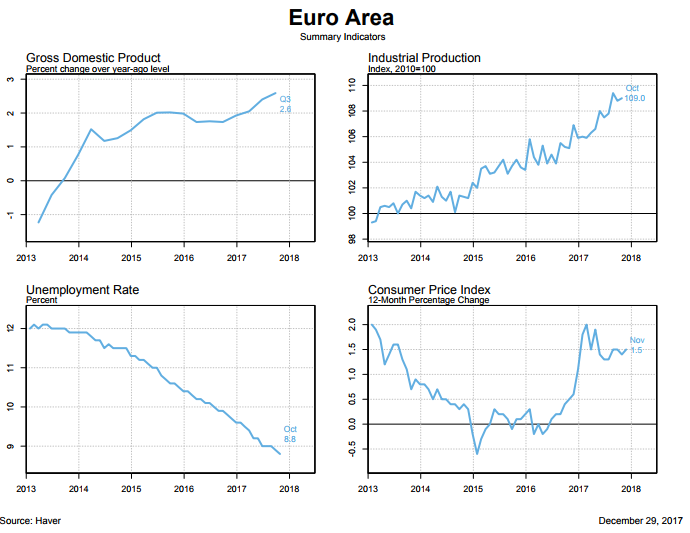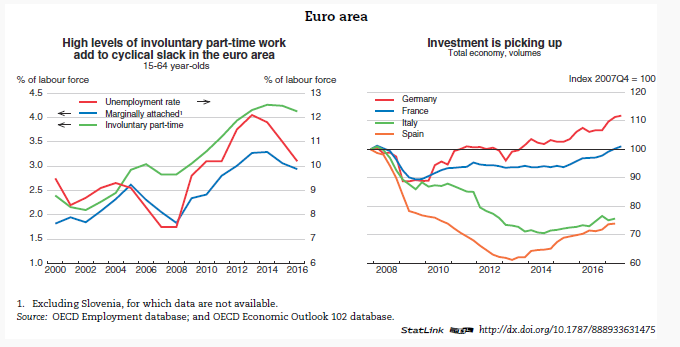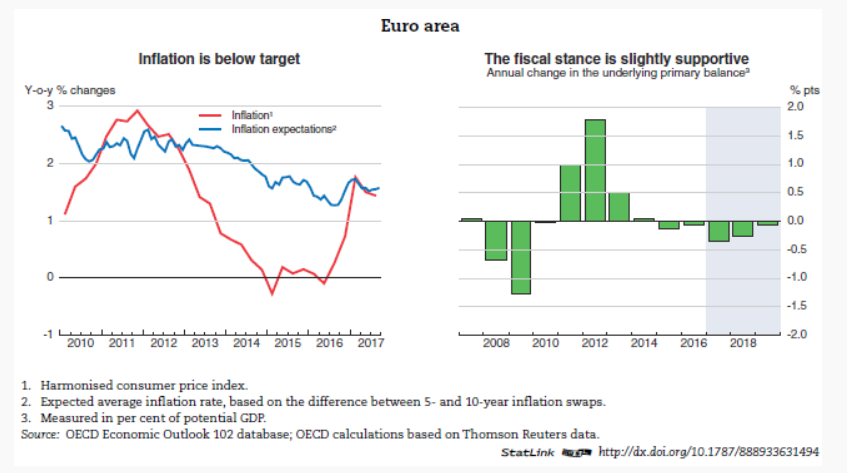Growth in the Euro Area’s economy is expected to remain strong this year (2%), but ease back to around to 1.5% in 2019. As the following charts illustrate, the risk of deflation has practically vanished, fiscal policy is supportive of Eurozone growth, and capital investment is picking up but unemployment is still quite high.
The improving global economy has helped to stabilize the Eurozone economies, but as well, in 2018 and 2019 monetary accommodation is expected to continue support growth. The world trade outlook for 2018 and 2019 is also promising for Euro Area growth.
In other words, both domestic and external forces should support continued Eurozone growth. Nonetheless, across the zone, unemployment is still very high, even though inflation will likely creep up closer to the 2% target by the end of 2019.
The ECB announced in October of 2017 that it will gradually reduce its asset purchases. Nevertheless, policy rates should remain on hold well past the end of asset purchases program, and until inflation is clearly and persistently rising to the 2% target level.

















Leave A Comment